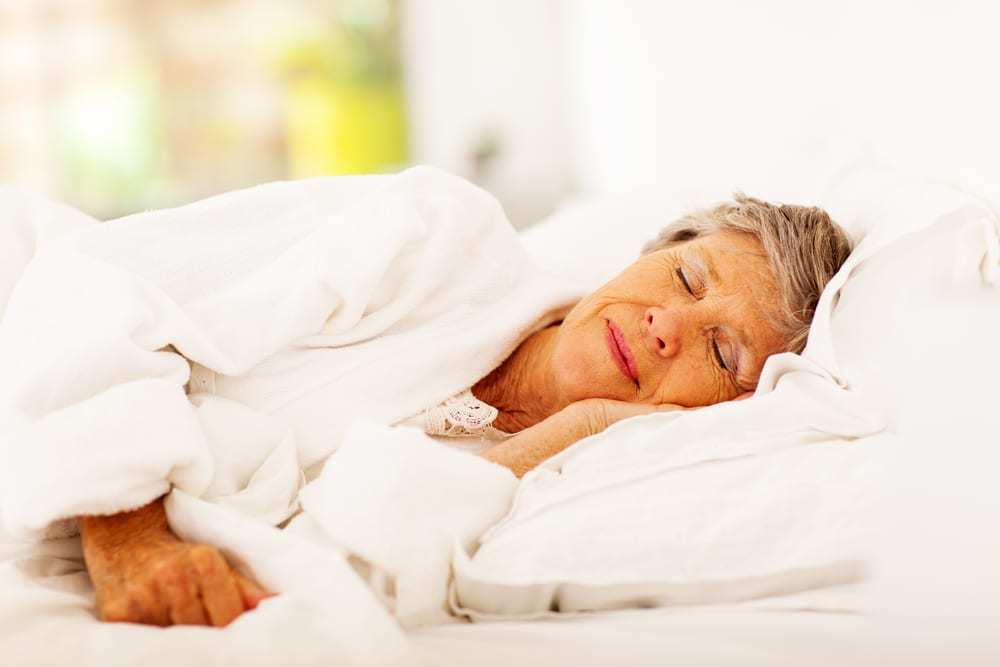Change is inevitable as we grow older. Over the years, you may have noticed your hair growing whiter and your skin becoming dryer, but have you observed any changes in your sleeping routine? It isn’t uncommon for older adults to struggle with sleep despite sleeping well in their youth. Once you learn how sleep changes with age, you can examine your own habits and make proactive changes to get more restful sleep each night.
How Sleep Changes with Age
We Sleep Less
Newborns typically spent 16 to 20 hours asleep each day, and young children sleep about 11 or 12 hours daily. Imagine! They spend half of their day asleep. Of course, sleep duration gradually decreases with age. By adulthood, most people aim to get about 7 or 8 hours of sleep into their routine. But unfortunately, many seniors struggle to get a full 8 eight hours of sleep in one go each night. Instead, they may nap during the day to make up for lost sleep overnight (source).
Our Sleep Patterns Shift
Infants sleep sporadically, young children require naps in addition to their nightly sessions, but adults typically consolidate their sleeping needs – sleeping in one long block, typically at night. While many cultures promote napping (such as the Spanish, with their siestas) and some individual people enjoy a brief daytime nap, the majority of American adults (66 percent) prefer not to nap. That said, the number of nappers rises with age. According to a poll conducted by the Pew Research Center, 41 percent of men and 28 percent of women over 50 had napped in the past 24 hours.
Our Sleep Cycles Lengthen
When we sleep, we go through several sleep cycles composed of rapid-eye-movement (REM) sleep, which is often associated with dreaming, and non-rapid eye movement (NREM) sleep. In children, sleep cycles last about 50 minutes, but by adulthood a sleep cycle is typically 90 minutes long. Children’s sleep cycles contain a large amount of deep sleep (a restorative type of sleeping that doesn’t include dreams), while elderly adults have shorter sessions of deep sleep and fewer of them (source). Seniors are more likely to sleep restlessly, often waking throughout the night.
We May Experience Insomnia, Sleep Apnea, or Snoring
For many seniors, insomnia or disrupted sleep are side effects of another health condition. For example, arthritis, depression, congestive heart failure, gastroesophageal reflux disease, respiratory disorders, restless leg syndrome, and a variety of other conditions can all make sleep challenging. If you’ve been having trouble sleeping, don’t assume that it’s a normal part of aging. Schedule an appointment with your doctor. Remember that if your insomnia is caused by an underlying medical disorder, it will likely persist until you receive a diagnosis and treatment.
_____
Now that you know how sleep changes with age, take a good look at your own sleeping habits. How long do you sleep each night? Do you often wake up throughout the night? Do you snore? Do you nap? If you’re often sleepy and find yourself falling asleep at inopportune times, contact your doctor. Sleep is essential to good health, and there are many things you can do to improve the likelihood of a good night’s sleep.
At Springhouse Village, we know how important it is to enjoy your retirement in a lively and welcoming environment. We make it easy for our residents to be active participants in our community. Whether that means encouraging residents to shop at local farmers markets or assisting them in starting a garden club, we strive to help our residents thrive. To learn more about the amenities and services we offer, contact Springhouse Village today.

